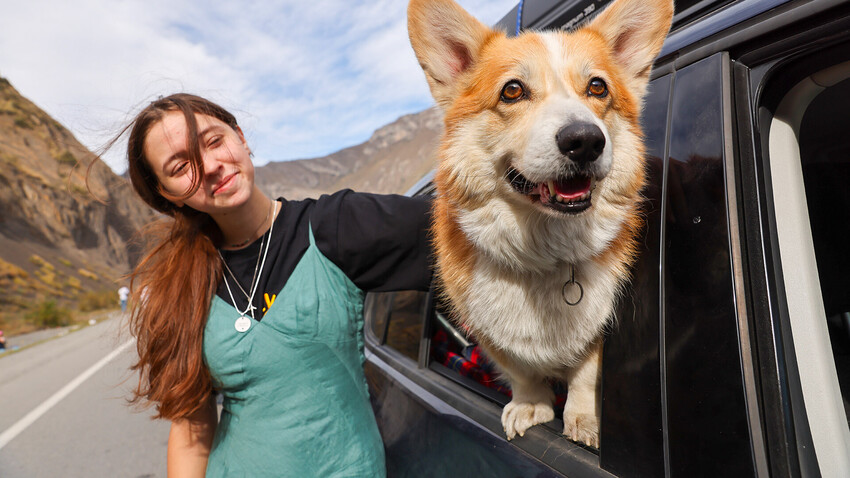Many foreign tourists used to travel to Russia by plane. But now, due to sanctions, there are not many direct flights left: from Dubai, Turkey, Serbia, Qatar, Egypt, Israel, the CIS countries and a few others. However, you can also enter Russia via its road borders – via car, bus or train. It may take longer than even a flight with transfers, but it’ll definitely be cheaper.
EU and U.S. citizens have to obtain a visa to travel to Russia. To acquire it, it’s enough to schedule an appointment at your nearest Russian embassy or a Russian visa center in your country. The process of getting a visa takes approximately a week, but it’s best to clarify the time frames on the consulate’s website or in person, when submitting your documents. There are currently 25 countries whose citizens don’t require a visa; you can check here if your country is among them.
Helsinki (Finland) – St. Petersburg
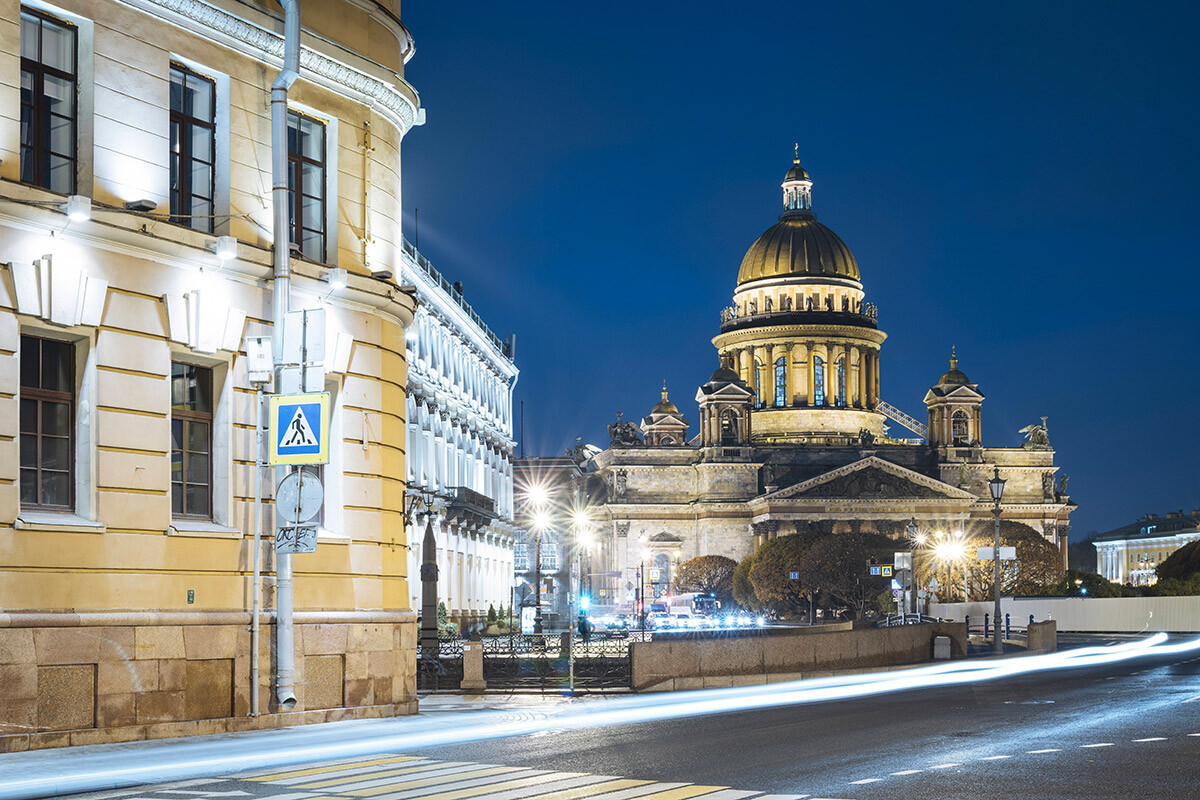
St. Isaac S Cathedral in St. Petersburg
Legion Media
This is a convenient route for the citizens of Norway, Sweden, Denmark and Finland.
The price of a bus trip is 5,390 rubles (approx. $60); for young people (from 13 to 18 years old or those who have an ISIC student card) it’s 4,850 rubles (approx. $54). You can depart both from a bus terminal or from Vantaa Airport.
The travel time is about eight hours; sometimes, it can take longer, due to waiting lines at the customs checkpoints. There are also routes from Helsinki to Petrozavodsk and Moscow, but, in any case, you still have to transfer in St. Petersburg.
There are only two bus companies that can take you from Helsinki to St. Petersburg – ‘Ecolines’ and ‘Lux Express’.
Kirkenes (Norway) - Murmansk
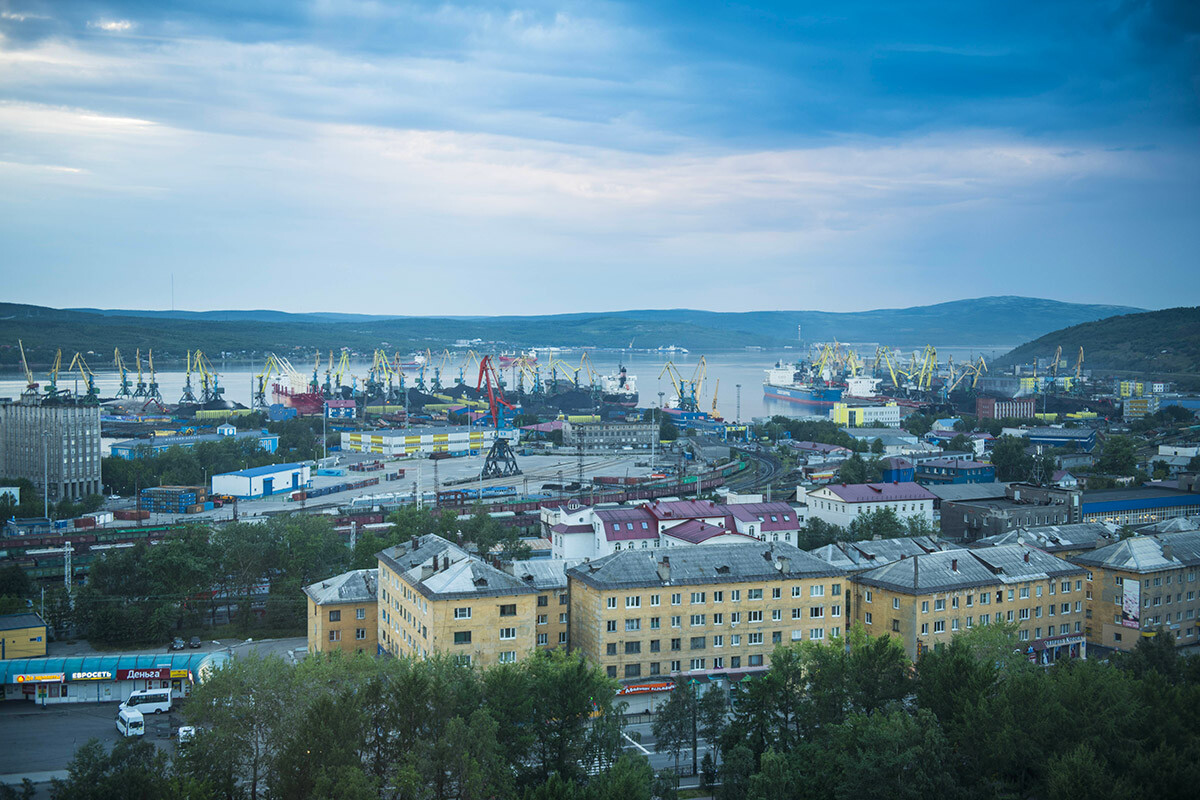
Murmansk at sunset
Legion Media
This route is suitable for those who live in the northern part of Norway or Sweden and want to travel to the north of Russia, not its center.
Unlike Helsinki-St. Petersburg buses, which depart every 2-3 hours until 15:00, with also night routes at 23:00, the Kirkenes-Murmansk route departs only once a day. The bus departs at noon from Høybuktmoen Airport and arrives at the ‘Polyarnye Zori’ hotel at 19:30.
It’s possible that the trip won’t be fully booked, but that doesn’t mean that the trip will get canceled. In this case, the bus usually gets swapped for a minivan or even a sedan car. The route is carried out by a few private carriers, whom you can contact in advance by email; you can find additional information on this website.
The price is 6,500 rubles, with no student discounts.
Tallinn (Estonia) – St. Petersburg
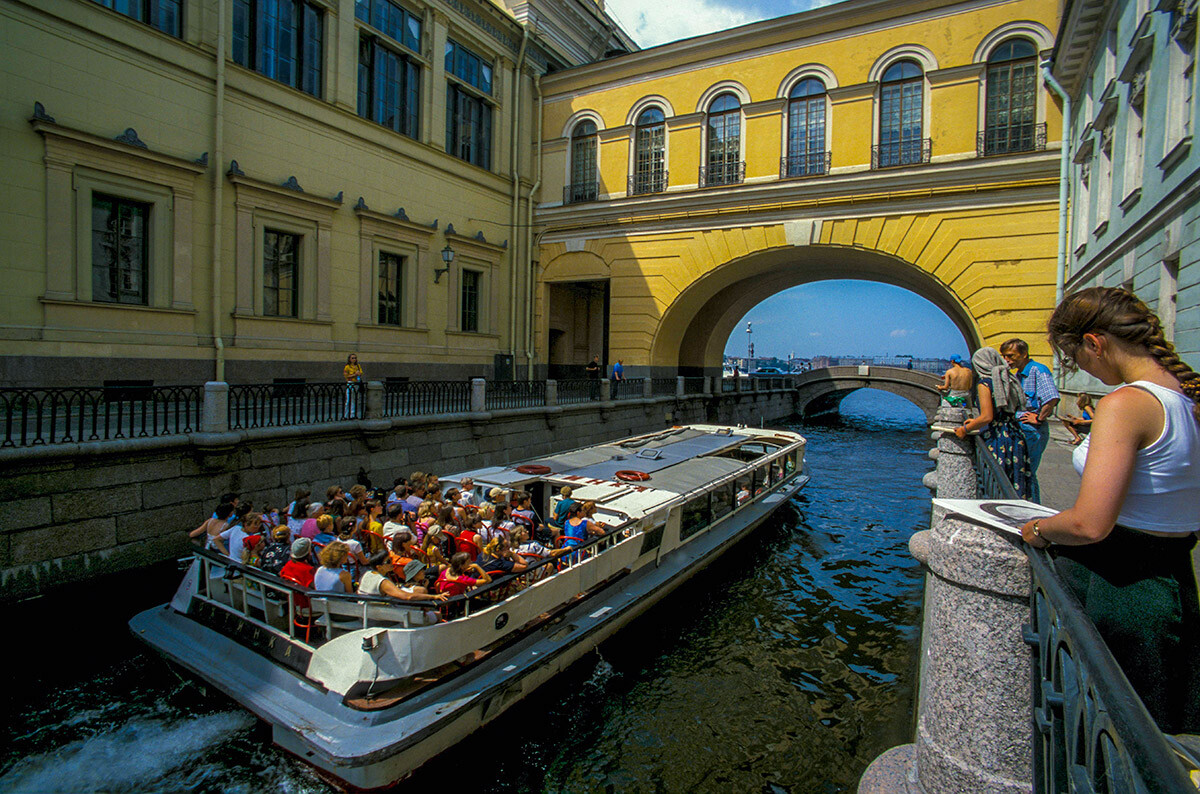
Moika River in St. Petersburg
Legion Media
There are only three companies that operate this route: ‘Lux Express’ and ‘Ecolines’, already familiar to you, as well as another one – ‘Baltic Shuttle’. The trip takes approximately seven hours if there will be no long waiting lines at the border.
You can also depart from the Estonian city of Narva; then the trip will only take three hours. Prices can vary – from 2,000 to 3,400 rubles (approx. $22-$38). There are also quite a lot of buses (as from Helsinki to St. Petersburg): at 00:30, 06:30, 07:00, 10:15, 11:15, 15:45, 16:45, 22:00 and 23:00.
Riga (Latvia) - Pskov
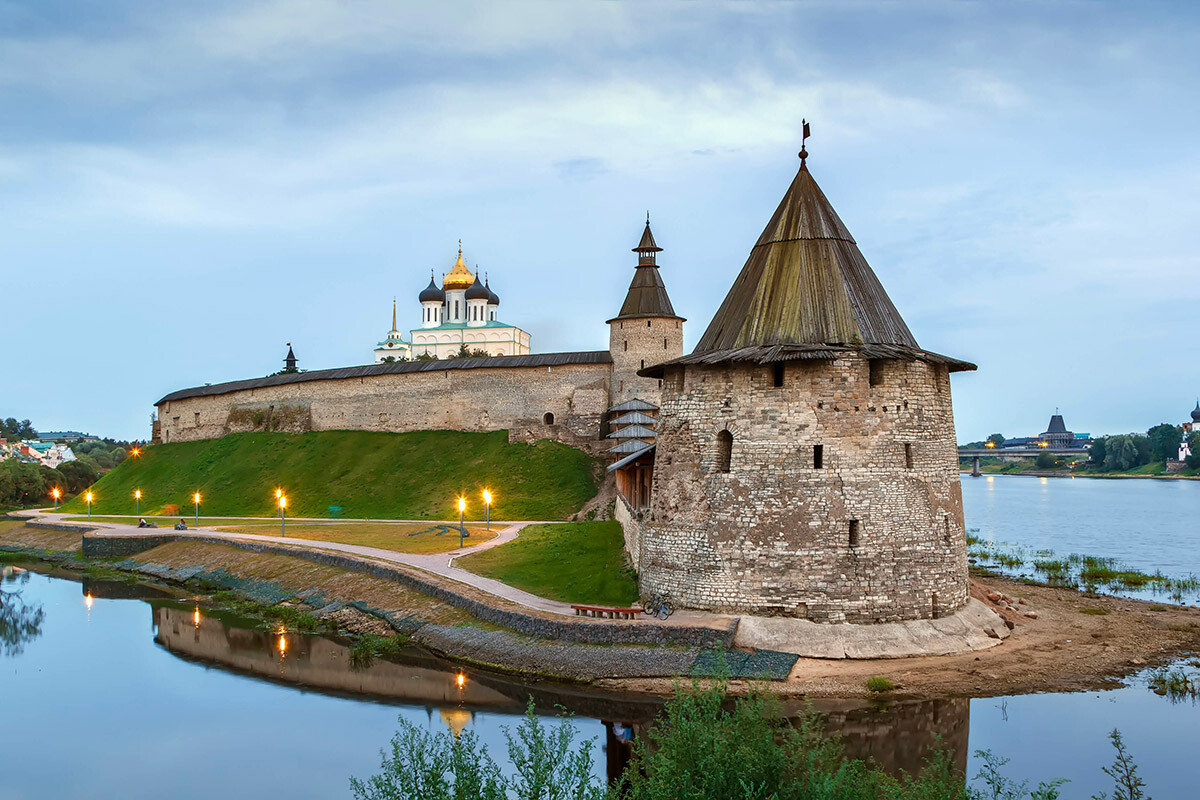
Pskov kremlin
Legion Media
This route is carried out only once a day. The bus departs at 19:30 and arrives at 01:30 in Pskov. The transport company is also private; the price is 3,950 rubles (approx. $44).
Pskov is a great city to begin your acquaintance with the history of Rus’ (Pskov is 903 years old). You can have a walk in the Finnish Park and look at all the towers of the local kremlin. Pskov is not as densely populated as St. Petersburg. Only slightly more than 210 thousand people live there. So, it’s a great place to enjoy the sounds of nature, even in the city center!
Vilnius (Lithuania) – Minsk (Belarus) - Moscow
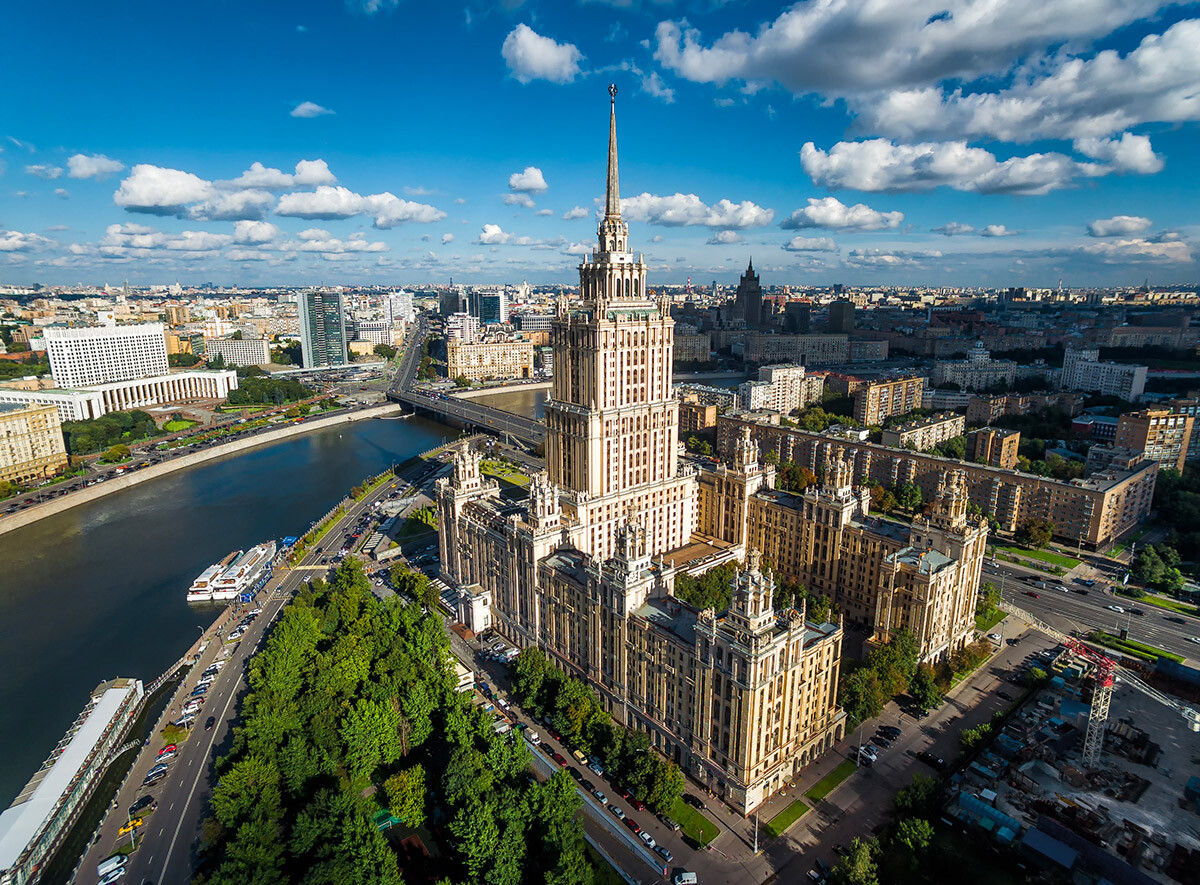
Moscow's Ukraine hotel, one of Stalin's 'Seven Sisters'
Legion Media
The Vilnius-Minsk route is a record holder in terms of the number of buses. Buses from different companies depart every hour – from ‘Ecolines’ to private carriers. You can have a walk in Minsk or visit other Belarus cities, like Brest or Grodno, and then head further to Moscow.
The ‘Lastochka’ express and a regular night train goes to Moscow from Minsk. The first one will take you there in 7 hours, the other will take 10 hours. But, you can have a night’s rest on the longer route – the train cars are equipped with full-fledged sleeping places! The ‘Lastochka’ only has seats.
A ticket from Vilnius to Minsk will set you back 3,300 rubles (approx. $37). From Minsk to Moscow – from 1500 to 7000 rubles (approx. $17-$78).
(UPD on September 26: However, crossing the Belarus-Russia border by land is currently only permitted for people with Russian or Belarus citizenship. The only way to cross it is by flying from Minsk to Moscow or another Russian city)
From 2024, it will be possible to enter Belarus on a Russian visa, since the Russian Federation and the Republic of Belarus recently ratified the agreement on mutual visa recognition.
Gdańsk (Poland) - Kaliningrad
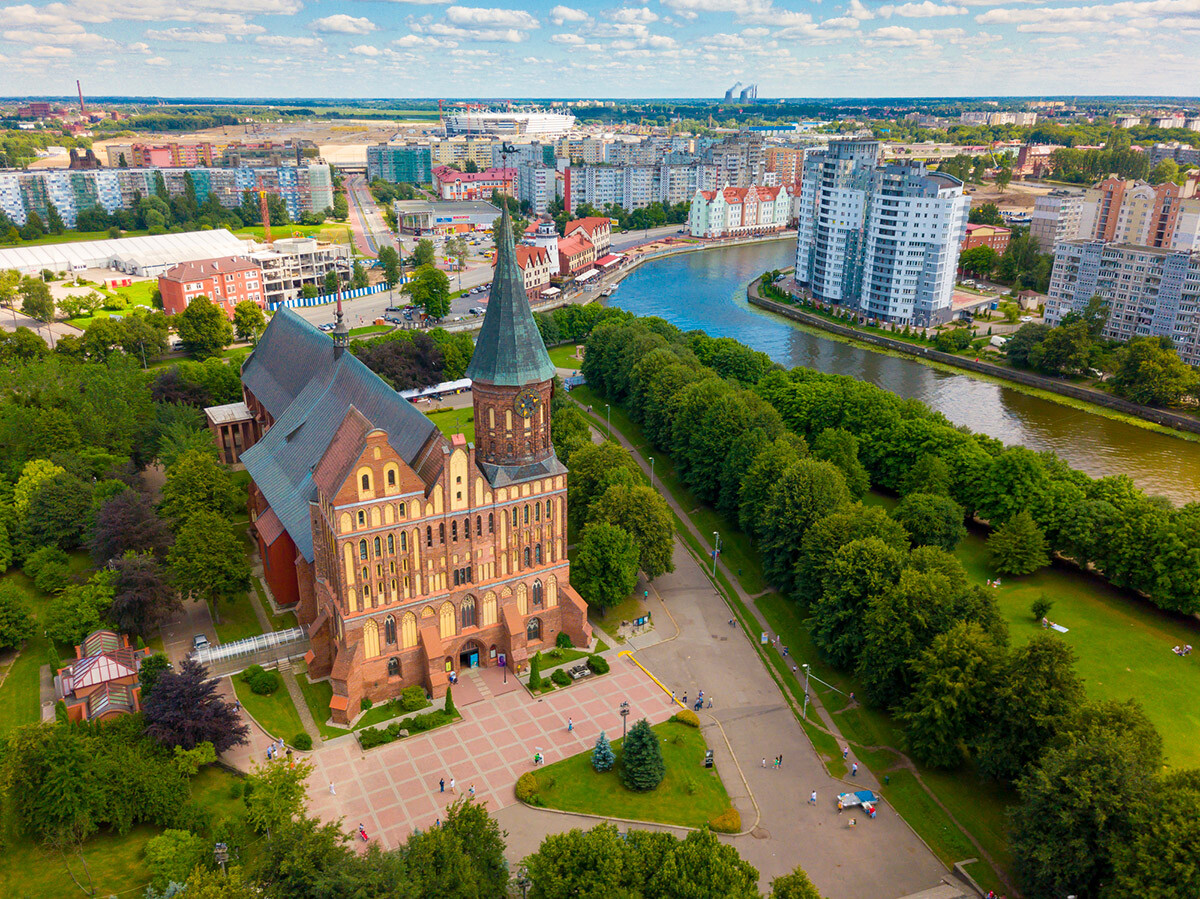
Kant Island in Kaliningrad
Legion Media
Kaliningrad is a unique city of Russia, since Kaliningrad Region is an exclave, a part of the territory of the country fully surrounded by the territory of another country.
Kaliningrad also differs from a regular Russian city by its architecture, still keeping the echoes of its European style. Until the USSR’s victory in the Great Patriotic War, Kaliningrad was the German city of Königsberg.
Buses from Gdańsk to Kaliningrad depart at 9:00, 15:00, 16:00, 17:00 and 18:00. The trip will take you only 3 hours and will cost you about 4,000 rubles (approx. $44). From Kaliningrad, you can reach Moscow on a train through Lithuania or on a plane. The train and ferry trips will take a day, a flight will take 2.5 hours – there are also regular flights through Khrabrovo Airport. From Kaliningrad, you can also reach St. Petersburg with the same transport and also by ferry (which also takes about a day).
Tbilisi (Georgia) - Vladikavkaz
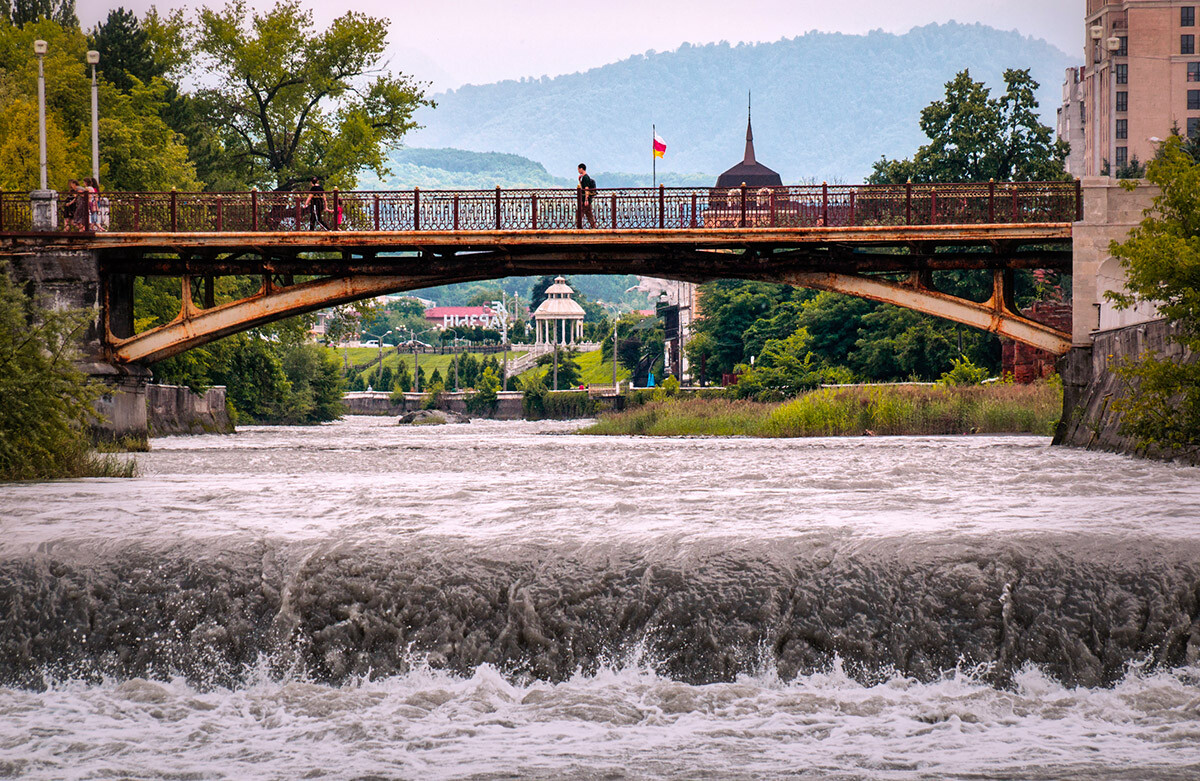
Terek river in downtown Vladikavkaz
Legion Media
There are a lot of buses that operate this route, as well; buses depart every day at 00:00, 6:00, 07:25, 9:30, 10:00, 15:00, 17:00, 22:00 and 23:00. Be ready for a ride along hairpin turns.
The route from Tbilisi to Vladikavkaz is quite popular; there are also a lot of taxis or you can try to catch a ride. There are different chats in VK and Telegram where people look for passengers. It’s convenient if you don’t want to be bound by a specific time.
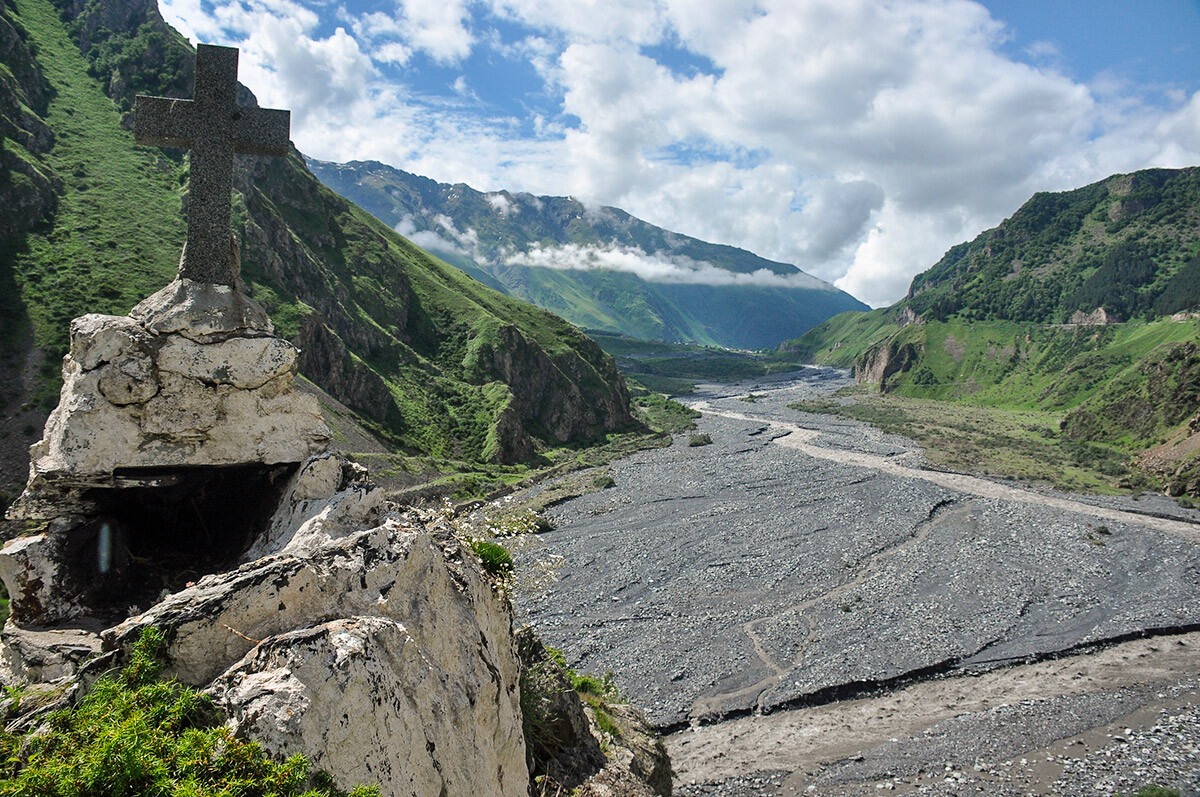
The 'Georgian Military Road'
Legion Media
But, this route is also infamous for its waiting lines at the border. The carriers’ website states that the trip will take anywhere from 5 to 9 hours. However, in reality, the trip can take the entire day or even longer – especially in summer, when a lot of people are returning from vacations.
The bus trip cost varies from 2,500 to 4,000 rubles (approx. $25-$44).
Tips for crossing land borders:
- Print out all your documents: your tickets there and back, your hotel address and your booking, your insurance and your bank statement. They can ask all of this from you at the border. And, even if they don’t, it’s better to have a paper copy of it all, since the internet doesn’t always work or your phone may run out of battery.
- Calculate your journey and the amount of things you need to take along. Sometimes, it’s better to take a backpack and only take necessary things in it, than to bring along a suitcase. During a border check, you often need to take all your bags with you. That takes a lot of time and energy. It’s all much faster with a simple backpack.
- Take some food and water; it’s especially relevant for the Tbilisi-Vladikavkaz route. Not every border control checkpoint has a grocery store; and some of the waiting lines take a lot of time.
Dear readers,
Our website and social media accounts are under threat of being restricted or banned, due to the current circumstances. So, to keep up with our latest content, simply do the following:
- Subscribe to our Telegram channel
- Subscribe to our weekly email newsletter
- Enable push notifications on our website
- Install a VPN service on your computer and/or phone to have access to our website, even if it is blocked in your country
If using any of Russia Beyond's content, partly or in full, always provide an active hyperlink to the original material.


